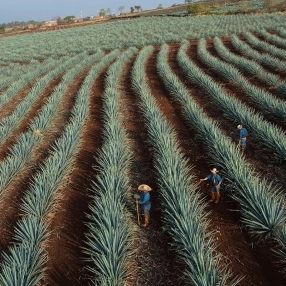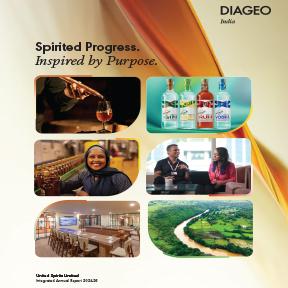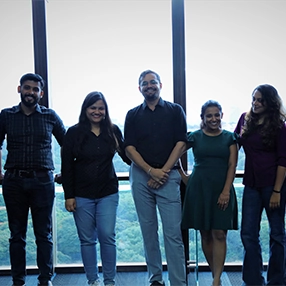Diageo India is among the country’s leading beverage alcohol companies with an outstanding collection of premium brands.
Overview
Our supply chains are also an important part of our contribution to driving higher standards social and environmental sustainability as well as business ethics, creating shared value for individuals, businesses and society.
From the farming and production of our ingredients to the manufacture and distribution of marketing materials or merchandising, each stage of every supply chain has an impact on our employees, local communities, the environment and other stakeholders. We want to integrate a high level of social and environmental standards into these supply chains and we have a clear commercial interest in ensuring that all our supply chains are sustainable.
Our strategy
Our strategy for achieving sustainable supply chains is focused on:
- Ensuring expected standards: Our supplier assessments are designed to help our suppliers improve their sustainability performance, including areas such as labour rights, health & safety and environmental performance. While we have our own standards and guidelines, we aim to make progress through partnerships and work with industry associations such as Aim Progress, Sedex, CDP, Bonsucro and SAI Platform.
- Building capability: We help suppliers meet our standards by offering support and training to build their skills and capabilities.
- Supporting and creating value with local businesses: Working with local suppliers is an important way in which we create value and contribute to local economies, especially in emerging markets.
We aim to achieve our strategy goals through work in three core areas:
In line with our commitment to promoting responsible sourcing across our business value chain, we actively collaborate with partners who share our dedication to addressing social and environmental challenges while upholding integrity in business practices. We expect all supply chain partners to adhere to the ethical business conduct guidelines outlined in our Code of Business Conduct (Our Code) and Partnering with Suppliers standard, which define the minimum social, ethical, and environmental standards embedded in our contractual agreements. These standards align with our ‘Spirit of Progress’ goals, empowering suppliers to integrate ethical principles within their own supply chains and business interactions with Diageo India, ensuring equity and fairness. To support this, we conduct regular training and awareness programs to strengthen supply chain resilience and enable partners to meet our responsible sourcing commitments. Additionally, our robust supplier selection process screens high-risk suppliers on labor standards, human rights, and legal compliance, integrating ESG principles into contracts and bidding processes. To further incentivize excellence, we run a rewards and recognition program that encourages suppliers to enhance their environmental, social, and governance (ESG) performance.
In pursuit of our goal to reduce Scope 3 emissions by 50% by 2030, we focus on three key priority areas to drive sustainability across our value chain: raw materials, packaging materials, and logistics and distribution. As part of our grain-to-glass sustainability strategy, we are committed to embedding sustainability principles throughout our supply chains and empowering our supply partners to improve their practices. Specific measures are being implemented in three critical areas:
- Water: where we encourage improved stewardship through reduced usage, better management, and replenishment activities. Find out more about how we will preserve water for life
- Carbon: as two-thirds of our total product-related emissions originate in supply chains, we support and encourage suppliers to measure, manage, and report their carbon emissions to reduce our overall greenhouse gas footprint. Find out more about how we are working towards a low carbon future
- Packaging: with a target of ensuring 100% recyclability, focusing on innovation in design to enhance circularity, reduce waste, and improve end-user waste management. Through these efforts, we aim to minimize environmental impact and contribute to a sustainable, circular economy. Find out more about how we are reimagining packaging.
Challenges such as water scarcity, unsustainable farming practices, and climate change pose significant risks to the supply of raw materials and the livelihoods of farmers who produce them. Recognizing the interconnected future prosperity of farmers, suppliers, and our business, we prioritize creating partnerships that are sustainable, secure, and mutually beneficial. We actively support sustainable sourcing and, where feasible, local sourcing of raw materials.
Our Sustainable Agriculture Guidelines outline the standards we expect in our agricultural supply chains, complementing our supplier code, Partnering with Suppliers. Our global supply chain connects us to diverse communities, offering an opportunity to drive positive change. At Diageo, sustainability is central to our operations, not a separate initiative. By promoting regenerative agricultural practices and supporting agri-input suppliers with improved farming methods, we aim to enhance sustainability. In India, where broken rice is a critical raw material, we are embedding regenerative agriculture practices, refining emissions accounting, and fostering strong partnerships to transform our rice supply chain into a model of environmental responsibility and resilience.







